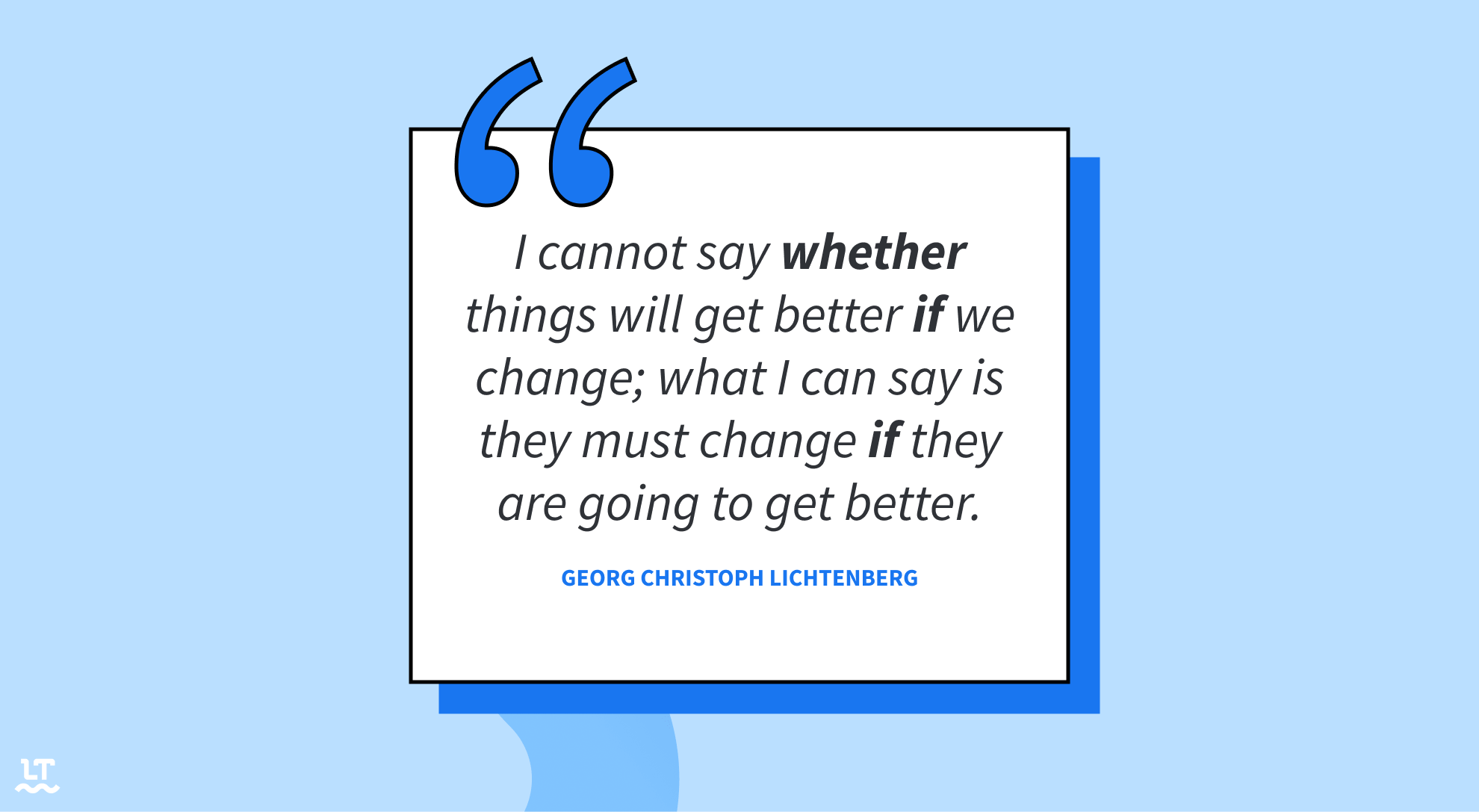If or Whether? We’ll Tell You When to Use Which Word and Why
Deciding when to use one English word over the other sometimes seems more like a matter of intuition over knowledge. Take for example whether and if. In casual speech, they are often used interchangeably. But in formal writing, there’s a distinction between the two. Whether you’re an English language learner or a native speaker, you might want to continue reading if you want to learn the difference.
- Whether and if are both subordinating conjunctions (words that combine clauses or sentences).
- Use if when writing a conditional sentence.
-
- You can use the back door if the front door is locked.
- Whether is used to show that there is more than one option available.
-
- She was deciding on whether she should attend Stanford or Harvard.
Table of contents
“If” or “Whether”
Let’s start with the basics. A conjunction is a type of word that joins other words in a sentence together. If and whether are examples of subordinating conjunctions, meaning they link subordinate clauses (phrases that have a subject and a verb but cannot stand alone) to the rest of the sentence.
In this example, “if you clean your room” is the subordinate clause.
There are instances, especially in casual speech and writing, where whether and if can be used interchangeably.
The sentence’s meaning doesn’t change, regardless of which word is in use: the students weren’t sure about the teacher’s punctuality. However, the words have distinct roles in other cases and should be used appropriately.

“If” and “whether” are both subordinating conjunctions.
When to Use “If”
The rule is simple. Use if when you have a conditional sentence. A conditional sentence is one that cites known facts (zero conditional), refers to something that may happen in the future (first conditional), to hypothetical situations (second conditional), and imaginary or hypothetical situations in the past (third conditional). If, not whether, is always used in these types of sentences.
Zero Conditional:
First Conditional:
Second Conditional:
Third Conditional:
When to Use “Whether”
Use whether to show that there is more than one option available.
In this sentence, Samantha knew she was dining out but wasn’t sure what type of cuisine she was going to eat. Now, let’s replace whether with if.
This sentence implies that Samantha may dine at a Chinese restaurant, an Indian restaurant, or not dine at all.
Although using whether or if interchangeably is common, it’s best to know their distinctions, especially in formal settings. Use if for conditional sentences and whether when showing there is more than one option. If you don’t know the difference, your readers might interpret a different message, whether you meant it or not.
